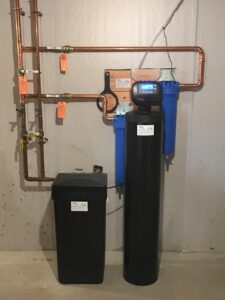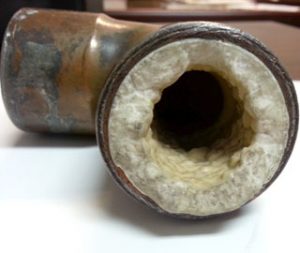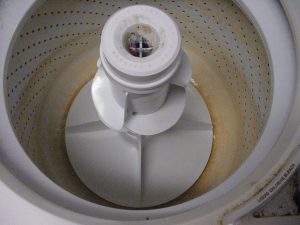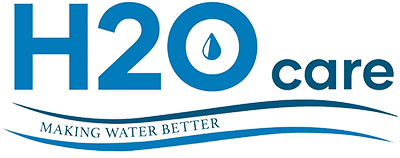WATER SOFTENER CONSIDERATIONS
The EPA has no maximum levels set for calcium and magnesium (the hardness minerals) in drinking water. These minerals can have aesthetic, even damaging affects on your home’s plumbing as well as your ability to clean. Hard water interferes with almost every cleaning task, including washing dishes, laundry and taking a shower. Clothing can look dingy and feel rough and scratchy. Dishes and glasses get spotted and film may build up on shower doors, bathtubs, sinks and faucets. Washing your hair in it may leave it feeling sticky and dull. Finally, residue build-up in pipes that can lower water pressure throughout the house.

High Efficiency Water Softener
WHAT DOES A WATER SOFTENER REMOVE?
A water softener is effective in removing dissolved forms of iron & manganese and hardness minerals. To remove particulate iron or manganese, a cartridge filter with proper micron rating will be effective. Selecting the appropriate micron rating and style of filter can be determined by a water treatment professional based on water test results and other symptoms.

Damaging Scale
Up-flow water softeners (versus down-flow) are recommended if there are elevated levels of iron in the water. Also, high efficiency softeners use much less salt and water in the equipment’s regeneration cycle. For a full discussion on what hard water is, see the link at Hard water described.
OTHER AFFECTS OF HARD WATER, IRON & MANGANESE
Some of the affects include corrosion and scaling inside pipes, major staining throughout the home’s showers, bathtubs, and sinks and destruction of hot water heaters way ahead of their useful life. Aside from some of the affects mentioned above, hard water scale can also build-up inside hot water heaters insulating the temperature sensor inside the tank causing them to work much harder to bring the temperature up to the set level. This will reduce the useful life of your hot water heater and require early replacement. For those using their well water for outside lawn irrigation, iron and manganese can cause major staining of outside walkways, house siding and anyplace water touches. See link at http://lawn-irrigation/.

Dissolved Iron Staining



